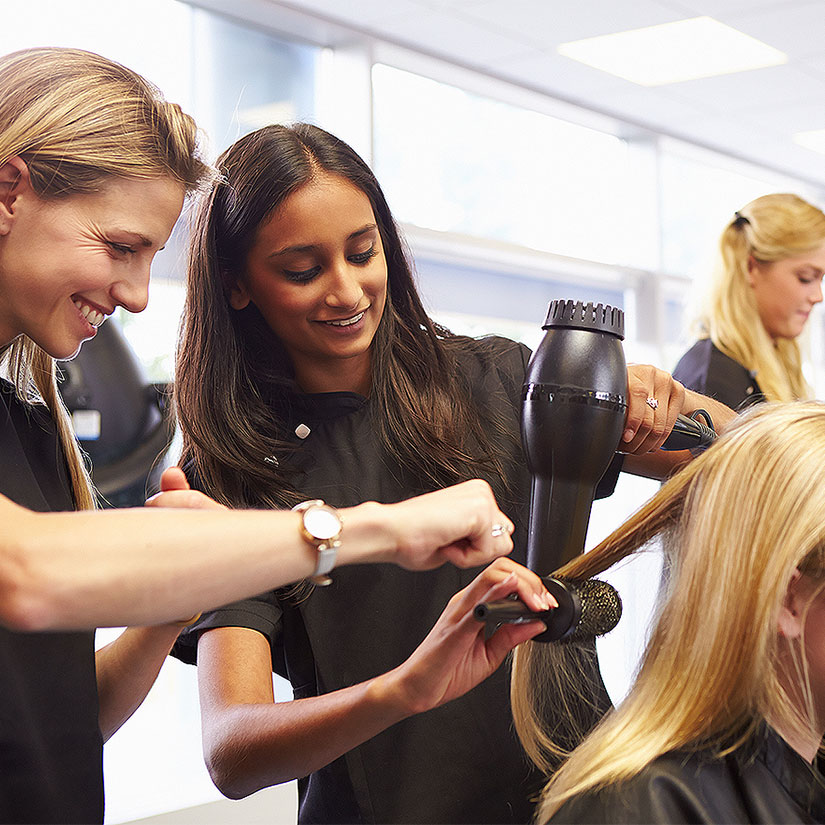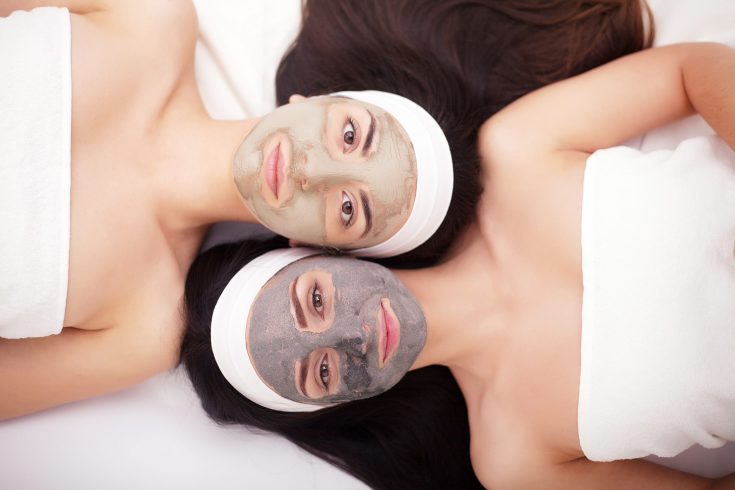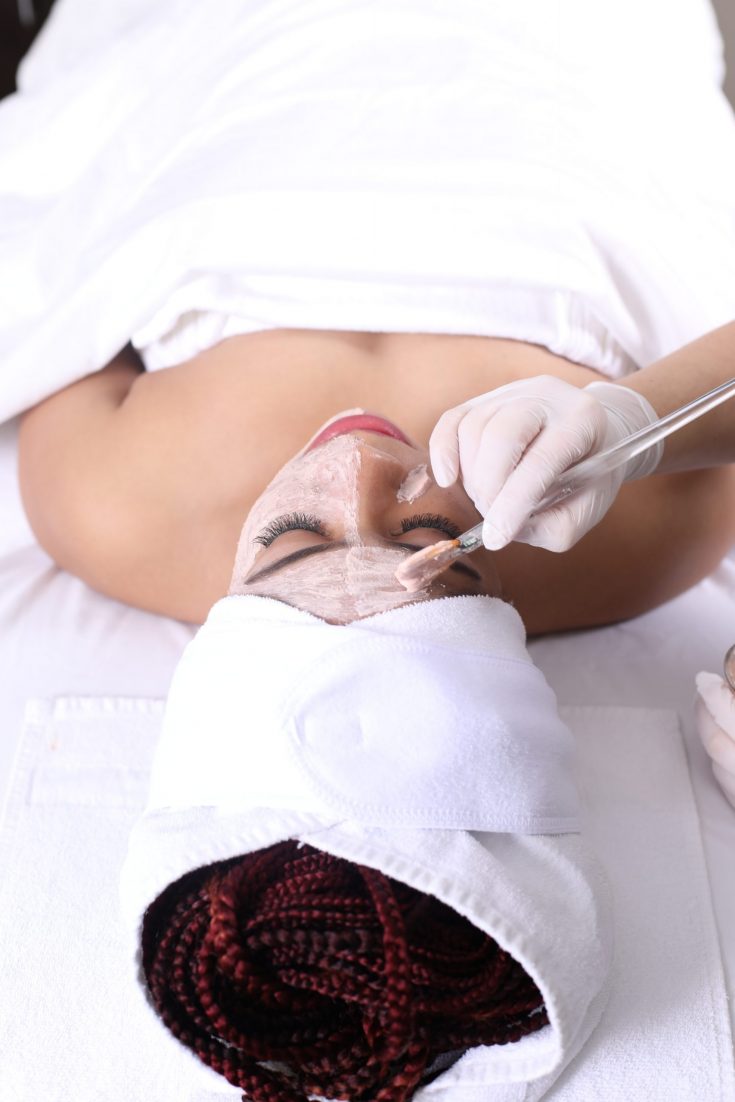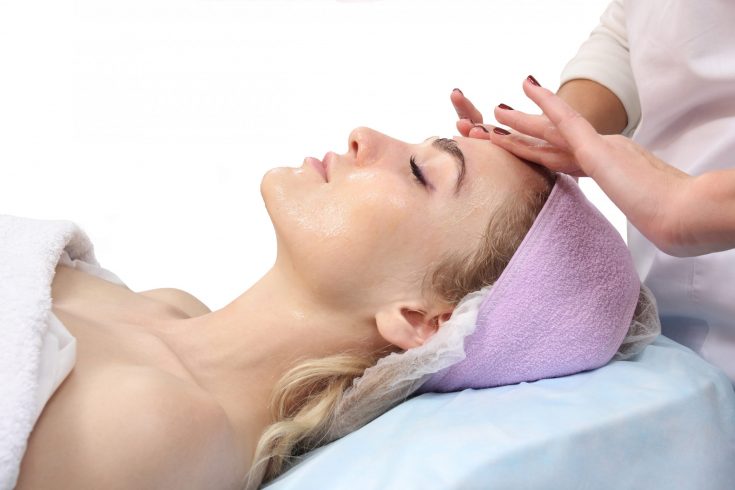Lately, face masks have become the image of ultimate self-care. If you’ve had a long day, why not put your feet up, apply a facemask, and put on your favorite movie? You may find yourself heading to the store to pick up a mask of your own to treat yourself and your skin. Just like any other product that’s part of your skincare routine, it’s important to pay attention to the needs of your skin and what benefits a product can provide. We’ve broken down different types of masks available to help you make a decision for your skincare routine.
1. Clay Masks. Clay masks have been part of the skin care world for many years. Typically made of a type of clay called bentonite or kaolin, clay masks have a multitude of benefits. There are also many different types of clay masks, given that certain ingredients provide different benefits. One of the reasons clay masks are so well loved is because they act as a sponge for oil and dirt trapped in the skin. They are especially effective at detoxifying skin. In particular, if you have acne-prone or skin that tends to be shiny from oil, a clay mask can be a great addition to your skincare routine. In addition, certain types of clay masks have brightening properties, leading to glowy and fresh skin. Use a clay mask once a week, wait to rinse until it has hardened on your face, and say hello to fresh skin!
2. Sheet Masks. Sheet masks are a great way to add a mask to your routine that don’t require much effort. Sheet masks are premade face-shaped sheets that feel like cloth, and are soaked in a serum. The serum that soaks the sheet provides all of the benefits for skin. Typically made up of vitamins, hyaluronic acid, and glycerin, to name a few ingredients, the serum is highly potent and will provide benefits like moisture and brightening. The sheet helps lock in the serum to skin, amping up the benefits. The sheet typically comes in one-time-use packaging and will feel wet when taken out of the wrapper. It can then be applied directly to the face and removed after the specified amount of time on the packaging. Instead of rinsing, gently rub the leftover serum into skin. Face masks, on top of all the benefits they provide, are great for those that are jet-setters because their individualized packaging, and easy, rinse-free application.
3. Cream Masks. One of the richer types of face masks, cream masks should be an essential part of your weekly routine if you suffer from dry skin. Cream masks look and feel like a thick daily moisturizer and provide similar benefits. They often contain ingredients like aloe, Cream masks are similar to sheet masks in that they don’t always need to be rinsed off, but instead dabbed off with a cloth, with any remaining formula to be rubbed in. Some are also meant to be worn overnight to fully let the ingredients soak into skin.
4. Exfoliating Masks. Exfoliating masks work by removing dead skin cells from the surface of your face. While there are facial scrubs available as a form of exfoliant, masks and scrubs work differently. A facial scrub uses gentle physical exfoliation to clarify skin, often in the form of grains of salt or seeds, The texture is often gritty. An exfoliating mask, however, uses acids to help remove dry or dull skin. Active ingredients in exfoliating masks can include alpha hydroxy acid (AHAs), glycolic acid, and fruit enzymes. These ingredients help brighten skin, and also dark spots that can come with aging. If it is your first time trying an exfoliating mask, be sure to use a gentle formulation and introduce it slowly into your routine. Once-a-week is a perfect amount to start until your skin becomes acclimated to the product. Over-exfoliation can lead to stripping of the skin, which can ultimately cause dry skin and irritation.
5. Gel Masks. Gel masks are another type of hydrating mask that are great for those with sensitive skin. Gel masks are often more lightweight than a cream mask and are formulated to help hydrate and cool down irritated or redness-prone skin. Gel masks typically come in a form that is meant to be rinsed off. They typically have ingredients like aloe, or botanical essences that help calm skin and provide hydration.
Whatever your skin may need, there’s a face mask to help you achieve your goals and look your best with radiant and healthy skin. Masks are an easy addition to your routine because they are only needed once-a-week and require little time. Not only do masks help improve the look of skin, but they can also provide important vitamins that your skin may be lacking. Just like with any other introduction to your skincare routine, pay attention to your skincare needs and any ingredients that may benefit your skin and incorporate any masks slowly into your routine.









